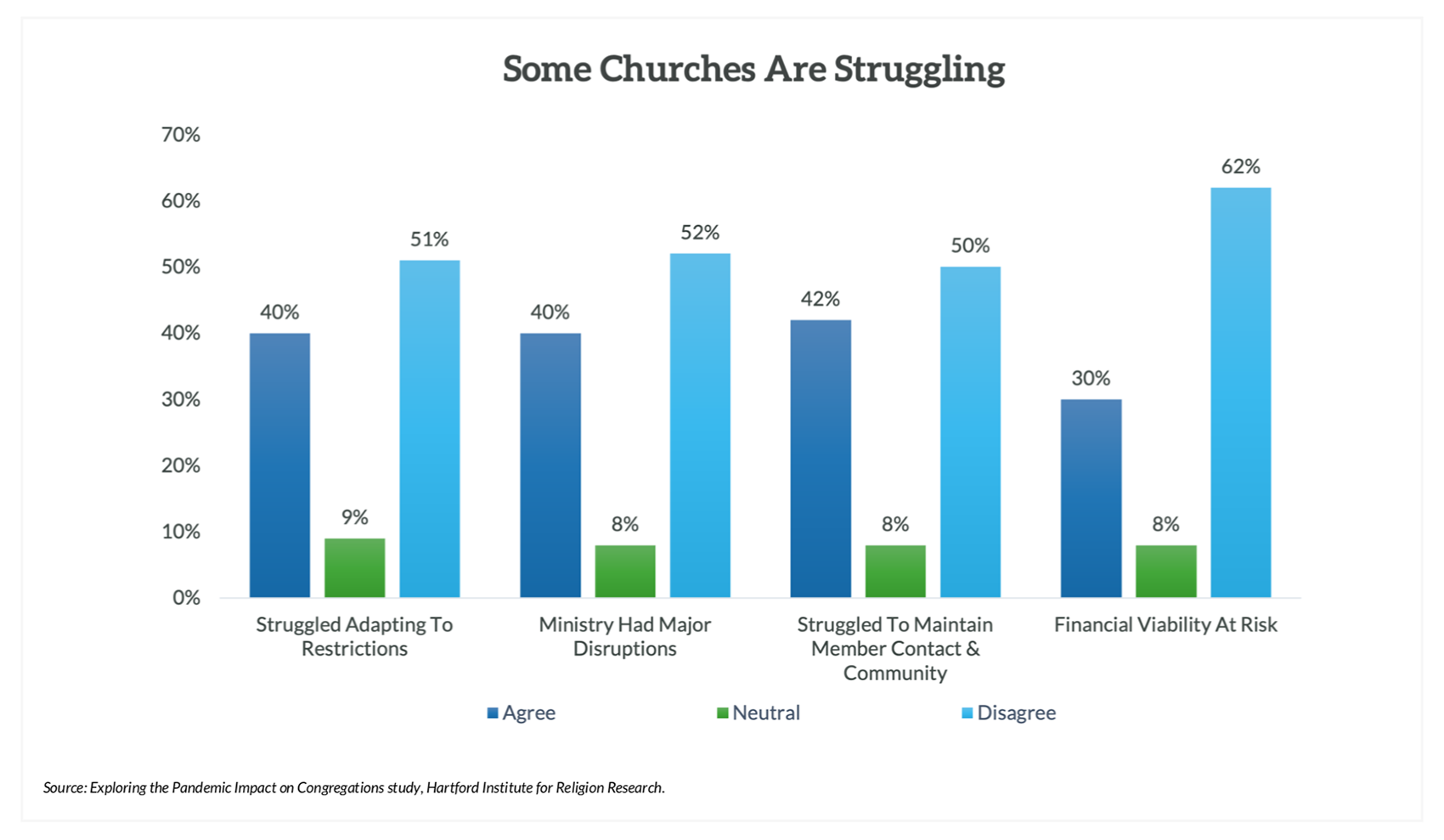(RNS) — Eight in 10 U.S. churches now provide hybrid worship services, offering options for congregants to worship either in person or online during the COVID-19 pandemic, according to a new study from the Hartford Institute for Religion Research.
Almost a quarter of churches, the report said, have moderate to severe conflicts about pandemic restrictions.
Amid technological adjustments, decisions about government and their own denominations’ COVID-19 restrictions on gathering, and greater requests for food and financial assistance, 67% of clergy said 2020 was the hardest year of their ministry.
The new study, which surveyed 2,074 churches from 38 denominations online this summer, is the first look from the institute’s project on the state of churches in the wake of the ongoing pandemic.
“These findings from the summer clearly show that the pandemic has had a profound impact across the religious spectrum, and that some churches are faring better than others,” Scott Thumma, principal investigator, said in announcing the study. “The fact that 83% of churches had at least one member test positive shows that almost no congregation was spared, but over two-thirds feel they will emerge stronger than before implies these faith communities are a resilient bunch.”
“You have to wonder, OK, so what year of your ministry was harder than the past year?” he said.
“Overall, it really shows that, I think, there are a good many congregations that have survived in pretty decent form but then there’s also a large chunk of them that are in kind of still a very bad way.”
The vast majority of churches — 88% — suspended in-person worship for some period of time. Most of those churches — 93% — have now resumed gathering in person.
Despite the switch for so many congregations to a hybrid model, more than half of the churches in the survey (54%) reported that at the pandemic’s height they completely halted fellowship events, such as church suppers and picnics.
But more than 30% of congregations saw growth in requests for food assistance, counseling and spiritual guidance and a quarter received more requests for financial help.
The rise in demand for these community services came as the churches saw an overall decline in the volunteers who might help meet those needs.
Churches reported that just 15% of regular adult participants were volunteering, a significant drop from pre-pandemic times, when the Faith Communities Today survey reported 40% of participants volunteering.
“In the same way that supply chains have been drastically upended by the pandemic, so too have many congregational ministry systems been disrupted,” the study noted.
“Some Churches Are Struggling” Graphic courtesy of HIRR


